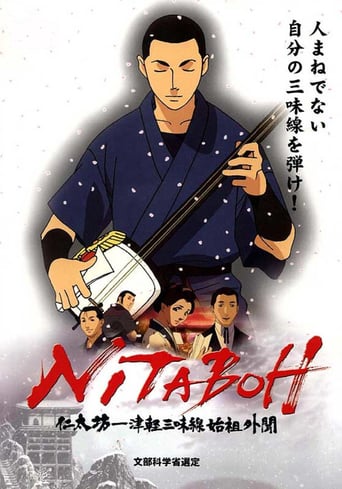Larry DeGala
Very few recent films come out to engage and educate the audience of a cultural watershed in Japanese music. The animation is beautifully poignant and tastefully done. The period that Nitaboh lives in is very dangerous for juvenile persons with disability. As a blind musician, he is not permitted to join the popular sects in society due to his low status as the son of a boatman. And influential sects begrudged Nitaboh's blossoming talent. He is discriminated against for being blind; he is discriminated against for being poor; and he is discriminated against for playing the shamisen in a nontraditional style. The young upstart's odds of survival was nonexistent from the beginning. The constant pangs of loneliness, personal loss, and an uncertain future hang over the blind child into adulthood, but some great inner strength carries Nitaboh through this very private journey. Few find the courage to love him, and he returns their love with his music. Music is a universal language for all audience, and the triumph of the human spirit is definitely a universal theme one can take to heart from a film crafted with love.



